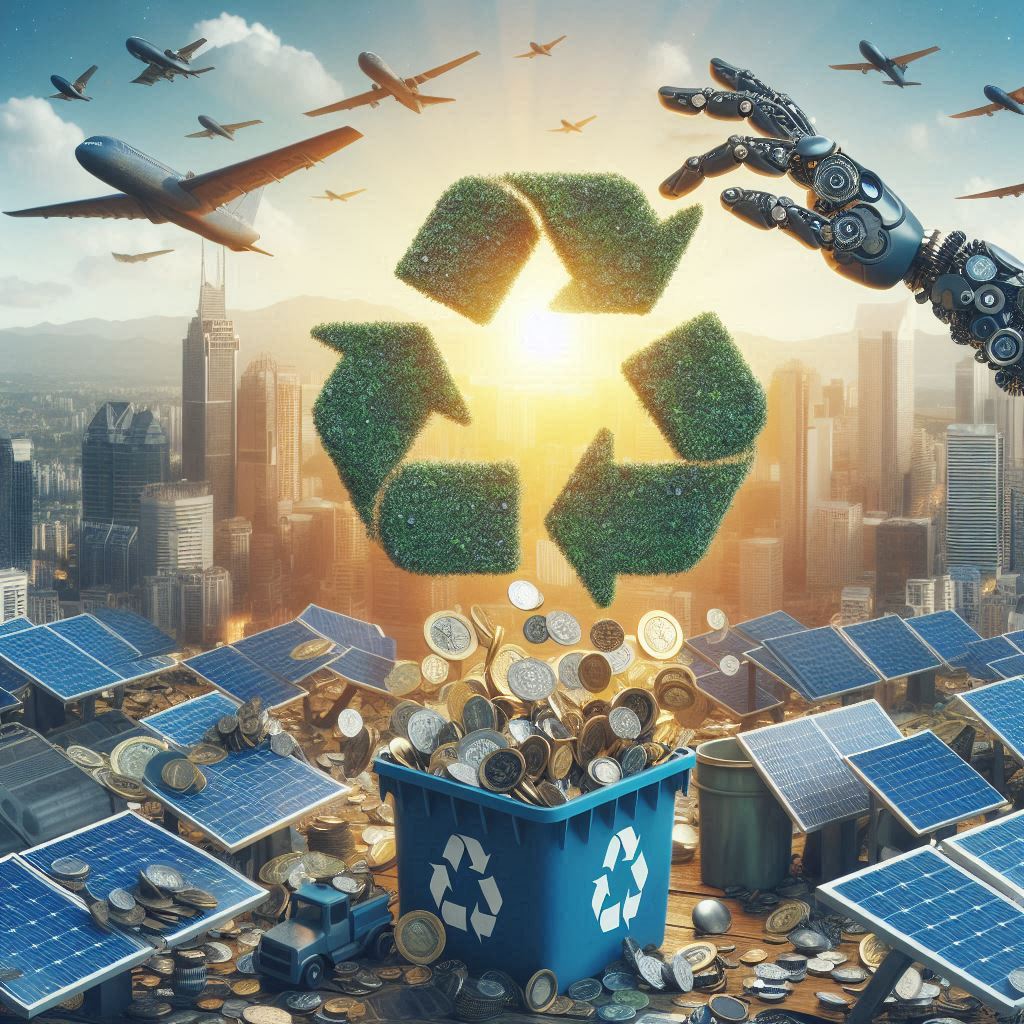
Introduction
Africa is at the forefront of a renewable energy revolution. As solar power becomes a cornerstone of the continent’s energy strategy, the conversation around managing solar waste is gaining momentum. Solar panels, with a lifespan of 20 to 30 years, are essential to Africa’s renewable energy infrastructure. However, the inevitable question arises: what happens when these panels reach the end of their lifecycle? Addressing this question is critical to maintaining sustainability and unlocking economic opportunities. By recycling and repurposing solar waste, Africa can turn a potential environmental challenge into a thriving industry that supports job creation, resource recovery, and sustainable development.
The Solar Energy Boom in Africa
Over the past decade, Africa has witnessed exponential growth in solar energy adoption. Countries like Kenya, South Africa, Morocco, and Nigeria have embraced solar solutions to address energy deficits, power remote communities, and reduce greenhouse gas emissions. Large-scale solar farms, mini-grids, and rooftop installations are now integral parts of the energy landscape.
With this rapid expansion comes a corresponding increase in solar waste. The International Renewable Energy Agency (IRENA) estimates that by 2050, the world will generate 78 million metric tons of solar panel waste, with Africa contributing a growing share. Preparing for this surge in waste presents both challenges and opportunities for the continent.
The Case for Recycling Solar Waste
- Environmental Benefits: Solar panels contain valuable materials such as glass, aluminum, silicon, and trace amounts of precious metals. Recycling these components reduces the need for mining new materials, conserving natural resources and minimizing environmental degradation.
- Economic Potential: Recycling solar waste can create a lucrative industry. Extracted materials can be resold or reused, providing revenue streams for businesses and reducing costs for manufacturers.
- Job Creation: Establishing a solar waste recycling sector can generate employment opportunities across the value chain, from collection and transportation to processing and manufacturing.
- Sustainability Goals: Proper solar waste management aligns with Africa’s commitment to the United Nations Sustainable Development Goals (SDGs), particularly those related to responsible consumption and production (SDG 12) and climate action (SDG 13).
Business Opportunities in Solar Waste Management
- Recycling Facilities: The core of solar waste management lies in setting up recycling plants. These facilities can process decommissioned panels to extract and repurpose valuable materials.
- Repair and Refurbishment Services: Not all solar panels reaching the end of their lifecycle are entirely unusable. Many can be repaired or refurbished, extending their utility.
- Innovative Products: Entrepreneurs can develop new products from recycled solar panel components, such as construction materials or electronic devices.
- Collection and Logistics Networks: Efficient waste collection systems are essential for recycling operations.
- Consulting and Policy Advocacy: As solar waste management gains traction, consulting firms can provide expertise on policy development and compliance.
Technological Innovations in Solar Recycling
Advances in technology are making solar panel recycling more efficient and cost-effective. Innovations include:
- Thermal Processing: High-temperature processes can separate materials such as silicon and metals from other components.
- Chemical Recycling: Chemical treatments are used to dissolve panel layers, allowing for the extraction of pure materials.
- Mechanical Recycling: Crushing and grinding technologies are used to break down panels, enabling material separation.
Policy and Regulatory Support
Governments play a vital role in fostering a thriving solar waste management industry. Key policy recommendations include:
- Implementing recycling mandates
- Providing financial incentives
- Promoting public awareness
- Encouraging international collaboration
The Road Ahead
Turning solar waste into wealth requires collaboration, innovation, and investment. Key steps include:
- Building infrastructure in strategic locations
- Fostering partnerships with international organizations
- Scaling up efforts through pilot projects
- Monitoring and evaluating progress
Conclusion
The rise of solar energy in Africa is a beacon of hope for sustainable development. By prioritizing recycling and repurposing efforts, Africa can turn solar waste into a valuable economic resource. This approach not only addresses environmental concerns but also creates jobs, stimulates innovation, and enhances the continent’s renewable energy ecosystem.
For businesses and investors, the opportunities are vast. The time to act is now, as the decisions made today will shape the continent’s sustainable energy future for decades to come.

